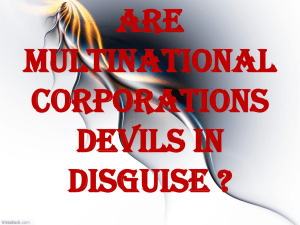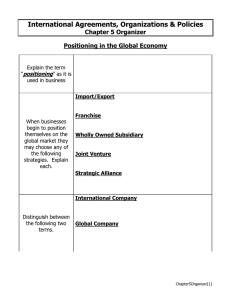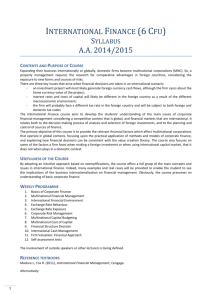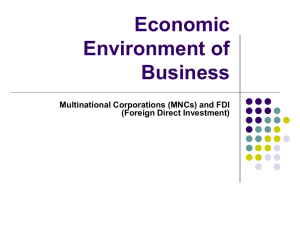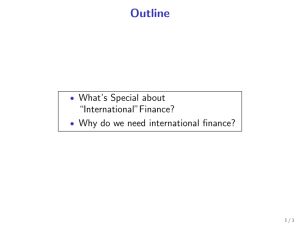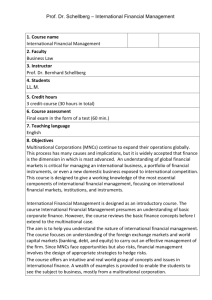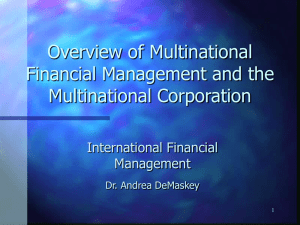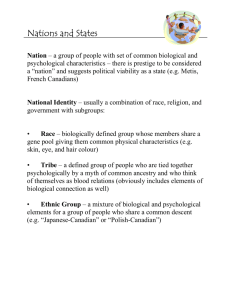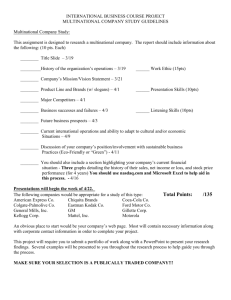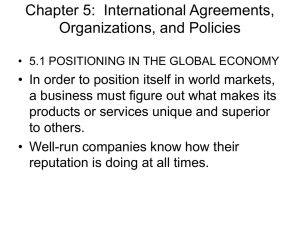Free Sample
advertisement
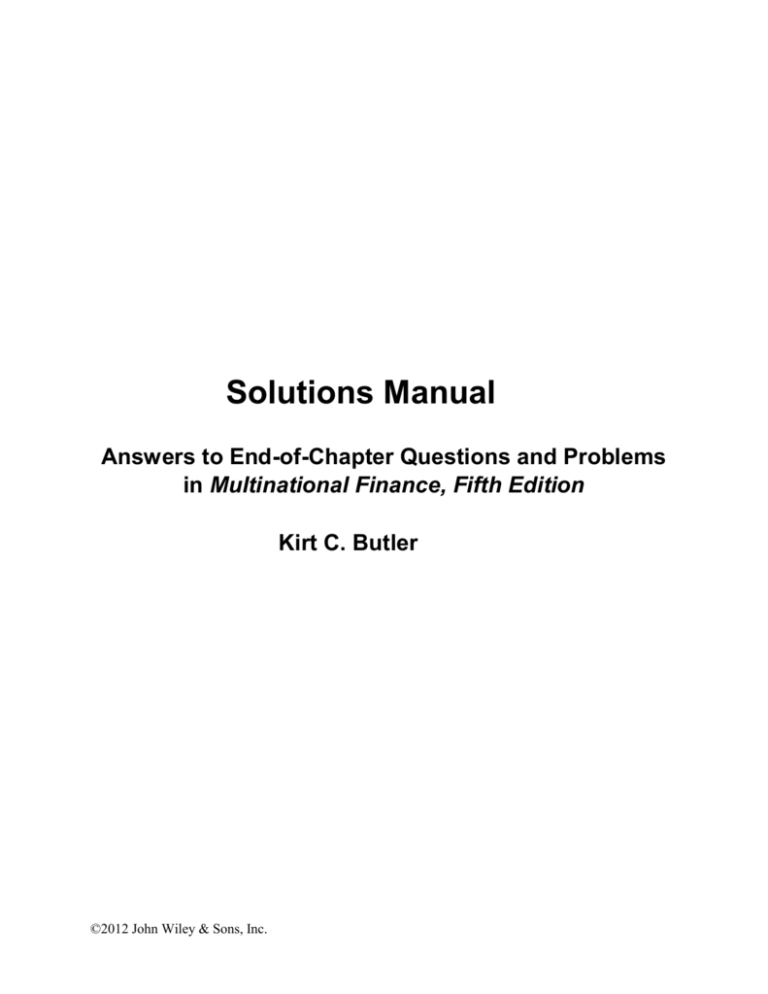
Solutions Manual Answers to End-of-Chapter Questions and Problems in Multinational Finance, Fifth Edition Kirt C. Butler ©2012 John Wiley & Sons, Inc. PART I Overview and Background Chapter 1 An Introduction to Multinational Finance Answers to Conceptual Questions 1.1 List the MNC’s key stakeholders. How does each have a stake in the MNC? Stakeholders narrowly defined include shareholders, debtholders, and management. More broadly defined, stakeholders also would include employees, suppliers, customers, host governments, and residents of host countries. 1.2 In what ways do cultural differences impact the conduct of international business? Because they define the rules of the game, national business and popular cultures impact each of the functional disciplines of business from research and development right through to marketing, production, and distribution. 1.3 What is country risk? Describe several types of country risk one might face when conducting business in another country. Country risks refer to the political and financial risks of conducting business in a particular foreign country. Country risks include foreign exchange risk, political risk, and cultural risk. 1.4 What is political risk? Political risk is the risk that a sovereign host government will unexpectedly change the rules of the game under which businesses operate. 1.5 What is foreign exchange risk? Foreign exchange risk is the risk of unexpected changes in foreign currency exchange rates. 1.6 What investment opportunities might MNCs enjoy that are not available to local firms? Operating cash flows can be increased by increasing revenues or decreasing operating expenses. The text mentions revenue-enhancing opportunities such as global branding, advantages of size and scope, and flexibility in marketing and distribution; operating cost reductions through access to low- ©2012 John Wiley & Sons, Inc. cost labor or raw materials, flexibility in sourcing or production, and economies of scale or vertical integration; and business strategies such as follow the customer, lead the customer, follow the leader, and building capacity directly in a foreign market (going local). 1.7 How can MNCs can reduce operating expenses relative to domestic firms? MNCs can enjoy several advantages over domestic firms including global brands, size, and flexibility in marketing and distribution. Strategies for enhancing revenues include follow the customer, lead the customer, follow the leader, and establishing local production. Operating costs can be reduced through access to low-cost raw materials and labor, flexibility in sourcing, production, or site selection, and economies of scale or vertical integration. 1.8 What are the perfect financial market assumptions? What is their implication for multinational financial management? In a perfect market, rational investors have equal access to prices and information in a frictionless market. If financial policy is to increase firm value, it must increase expected cash flows or decrease the discount rate in a way that cannot be replicated by investors. MNCs are in a better position than domestic firms to take advantage of financial market imperfections through financial market arbitrage, hedging policy, access to international sources of capital, and multinational tax strategy. 1.9 Describe the ways in which multinational financial management is different from domestic financial management. Multinational financial management is conducted in an environment that is influenced by more than one cultural, social, political, or economic environment. ©2012 John Wiley & Sons, Inc.
